#debt for climate
Text
One country in the [climate-change] firing line is Cape Verde. The West African island nation, where 80% of the population lives on the coast, is already feeling the brunt of rising sea levels and increasing ocean acidity on its infrastructure, tourism, biodiversity and fisheries.
The country desperately needs to both mitigate and adapt to these problems, but – as with many Global South countries at present – simply lacks the budget to do it: Cape Verde’s debt reached an all-time high of 157% of GDP in 2021.
In a bid to address both issues simultaneously, the country has signed a novel agreement with Portugal to swap some of its debt for investments into an environmental and climate fund. The former Portuguese colony owes the Portuguese state €140m ($148m) and Portuguese banks €400m.
On a state visit to Cape Verde on 23 January, Portuguese Prime Minister António Costa announced the debt would be put towards Cape Verde’s energy transition and fight against climate change. Costa earmarked projects involving energy efficiency, renewable energy and green hydrogen as possible targets for the fund.
“This is a new seed that we sow in our future cooperation,” said Costa. “Climate change is a challenge that takes place on a global scale and no country will be sustainable if all countries are not sustainable.”
“Debt-for-climate swaps” allow countries to reduce their debt obligations in exchange for a commitment to finance domestic climate and nature projects with the freed-up financial resources. The concept has been knocking about since the 1980s, typically geared at nature conservation. However, after recent deals for Barbados, Belize and the Seychelles, and huge $800m and $1bn agreements in the offing for Ecuador and Sri Lanka, is this financial instrument finally coming of age?
How It Works
Debt-for-climate swaps typically follow a formula. First, a creditor [here, a group or government that money is owed to] agrees to reduce debt, either by converting it into local currency, lowering the interest rate, writing off some of the debt, or a combination of all three. The debtor will then use the saved money for initiatives aimed at increasing climate resilience, lowering greenhouse gas emissions or protecting biodiversity.
The original 'debt-for-nature swaps' began as small, trilateral deals, with NGOs buying sovereign debt owed to commercial banks to redirect payments towards nature projects. They have since evolved into larger, bilateral deals between creditors and debtors...
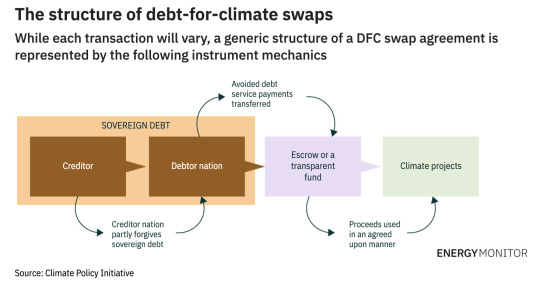
Debt-for-climate swaps free up fiscal resources so governments can improve resilience and transition to a low-carbon economy without causing a fiscal crisis or sacrificing spending on other development priorities. [These swaps] can create additional revenue for countries with valuable biodiversity or carbon sinks by allowing them to charge others to protect those assets, thereby providing a global public good.
Swaps can even result in an upgrade to a country’s sovereign credit rating, as was the case in Belize, which makes government borrowing cheaper [and improves the country's economy.]
Right now, these [swaps] are needed more than ever, with low-income countries dealing with multiple crises that have put huge pressure on public debt...
Debt-for-climate swaps: “Increasing in size and scale”
Although debt-for-climate swaps are not new, until recently the amount of finance raised globally from the instrument has been modest – just $1bn between 1987 and 2003, according to one OECD study. Just three of the 140 swaps over the past 35 years have had a value of more than $250m, according to the African Development Bank. The average size was a mere $26.6m.
However, the market has steadily picked up pace over the past two decades... In 2016, the government of the Seychelles signed a landmark agreement with developed nation creditor group the Paris Club, supported by NGO The Nature Conservancy (TNC), for a $22m investment in marine conservation.
The government of Belize followed suit in 2021 by issuing a $364m blue bond – a debt instrument to finance marine and ocean-focused sustainability projects – to buy back $550m of commercial debt to use for marine conservation and debt sustainability.
Then, last year, Barbados completed a $150m transaction, supported by the TNC and the Inter-American Development Bank, allowing the country to reduce its borrowing costs and use savings to finance marine conservation.
“Two or three years ago, we were talking about $50m deals,” says Widge. “Now they have gone to $250–300m, so they are definitely increasing in size and scale.”
Indeed, the success of the deals for the Seychelles, Belize and Barbados, along with the debt distress sweeping across the Global South, has sparked an uptick of interest in the model.
Ecuador is reported to be in negotiations with banks and a non-profit for an $800m deal, and Sri Lanka is discussing a $1bn transaction – which would be the biggest swap to date."
-via Energy Monitor, 2/1/23
Note: I'm leaving out my massive rant about how the vast majority of this debt is due to the damages of colonialism. And also countries being forced to "PAY BACK" COLONIZERS FOR THEIR OWN FREEDOM for decades or in some cases centuries (particularly infuriating example: Haiti). Debt-for-climate swaps are good news, and one way to help right this massive historic and ongoing economic wrong
#climate change#developing countries#economics#debt for climate#debt relief#cape verde#barbados#seychelles#ecuador#sri lanka#portugal#belize#global south#conservation#biodiversity#good news#hope#international politics
50 notes
·
View notes
Text
PLEASE, if you can, join your local Debt for Climate protest. they're taking place in many countries all over the world as the G7 summit in Germany is celebrated
– it's estimated that the global north is responsible for 92% of the excess carbon emissions while it's the global south the one suffering the most from climate change, paying the price by forcefully having to exploit our natural resources to pay external debts imposed by the rich and powerful countries and orgs like IMF and the World Bank, not to mention that a staggering 98% of deaths caused / related to climate change effects are also borne by the global south
Rich nations owe a massive climate debt to poorer nations: for the devastating impacts of the fossil fuels we have burned. Yet they have no intention of paying for the loss and damage they have caused. Poor countries are deemed to owe massive financial debts to the rich nations, yet they cannot pay them without destroying their economies and their ecosystems.
this is simply a continuation of colonialism, they abused our lands before and they keep doing it now. please support Debt for Climate. the rich OWE US. they are killing our planet and they're stealing our future while exploiting us, charging us.
"The origins of the debt arise from the origins of colonialism. Those who lend us money are the same who colonized us before. They are those who used to manage our states and economies." – Thomas Sankara (1987)
#debt for climate#im so mad so so mad#our planet is going to shit and the rich dont care and people will bury their head in the sand and we all keep suffering#while a handful of assholes reap a daily profit that could end world hunger#vegan#climate change
13 notes
·
View notes
Text
Things Biden and the Democrats did, this week #13
April 5-12 2024
President Biden announced the cancellation of a student loan debt for a further 277,000 Americans. This brings the number of a Americans who had their debt canceled by the Biden administration through different means since the Supreme Court struck down Biden's first place in 2023 to 4.3 million and a total of $153 billion of debt canceled so far. Most of these borrowers were a part of the President's SAVE Plan, a debt repayment program with 8 million enrollees, over 4 million of whom don't have to make monthly repayments and are still on the path to debt forgiveness.
President Biden announced a plan that would cancel student loan debt for 4 million borrowers and bring debt relief to 30 million Americans The plan takes steps like making automatic debt forgiveness through the public service forgiveness so qualified borrowers who don't know to apply will have their debts forgiven. The plan will wipe out the interest on the debt of 23 million Americans. President Biden touted how the plan will help black and Latino borrowers the most who carry the heavily debt burdens. The plan is expected to go into effect this fall ahead of the election.
President Biden and Vice-President Harris announced the closing of the so-called gun show loophole. For years people selling guns outside of traditional stores, such as at gun shows and in the 21st century over the internet have not been required to preform a background check to see if buyers are legally allowed to own a fire arm. Now all sellers of guns, even over the internet, are required to be licensed and preform a background check. This is the largest single expansion of the background check system since its creation.
The EPA published the first ever regulations on PFAS, known as forever chemicals, in drinking water. The new rules would reduce PFAS exposure for 100 million people according to the EPA. The Biden Administration announced along side the EPA regulations it would make available $1 billion dollars for state and local water treatment to help test for and filter out PFAS in line with the new rule. This marks the first time since 1996 that the EPA has passed a drinking water rule for new contaminants.
The Department of Commerce announced a deal with microchip giant TSMC to bring billions in investment and manufacturing to Arizona. The US makes only about 10% of the world's microchips and none of the most advanced chips. Under the CHIPS and Science Act the Biden Administration hopes to expand America's high-tech manufacturing so that 20% of advanced chips are made in America. TSMC makes about 90% of the world's advanced chips. The deal which sees a $6.6 billion dollar grant from the US government in exchange for $65 billion worth of investment by TSMC in 3 high tech manufacturing facilities in Arizona, the first of which will open next year. This represents the single largest foreign investment in Arizona's history and will bring thousands of new jobs to the state and boost America's microchip manufacturing.
The EPA finalized rules strengthening clean air standards around chemical plants. The new rule will lower the risk of cancer in communities near chemical plants by 96% and eliminate 6,200 tons of toxic air pollution each year. The rules target two dangerous cancer causing chemicals, ethylene oxide and chloroprene, the rule will reduce emissions of these chemicals by 80%.
the Department of the Interior announced it had beaten the Biden Administration goals when it comes to new clean energy projects. The Department has now permitted more than 25 gigawatts of clean energy projects on public lands, surpass the Administrations goal for 2025 already. These solar, wind, and hydro projects will power 12 million American homes with totally green power. Currently 10 gigawatts of clean energy are currently being generated on public lands, powering more than 5 million homes across the West.
The Department of Transportation announced $830 million to support local communities in becoming more climate resilient. The money will go to 80 projects across 37 states, DC, and the US Virgin Islands The projects will help local Infrastructure better stand up to extreme weather causes by climate change.
The Senate confirmed Susan Bazis, Robert White, and Ann Marie McIff Allen to lifetime federal judgeships in Nebraska, Michigan, and Utah respectively. This brings the total number of judges appointed by President Biden to 193
#Thanks Biden#Joe Biden#student loans#student loan debt#debt forgiveness#gun control#forever chemicals#PFAS#climate change#green energy
3K notes
·
View notes
Text
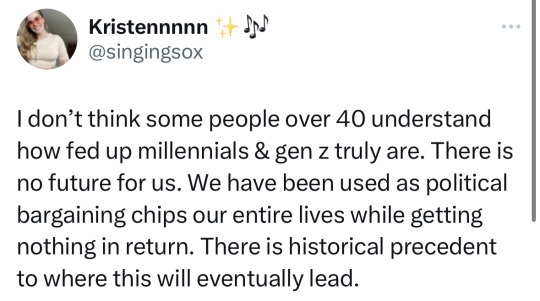

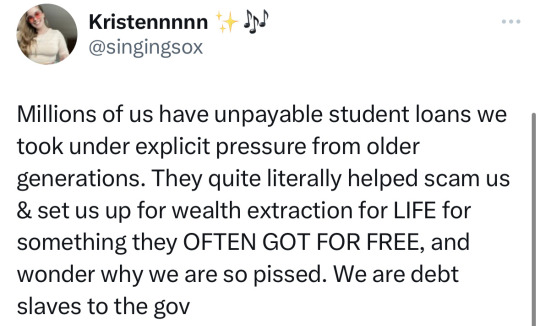
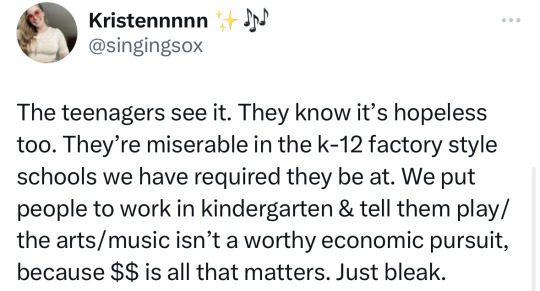
Source
#capitalism#eat the rich#current events#news#climate change#student debt#health care#housing crisis#working class
6K notes
·
View notes
Text
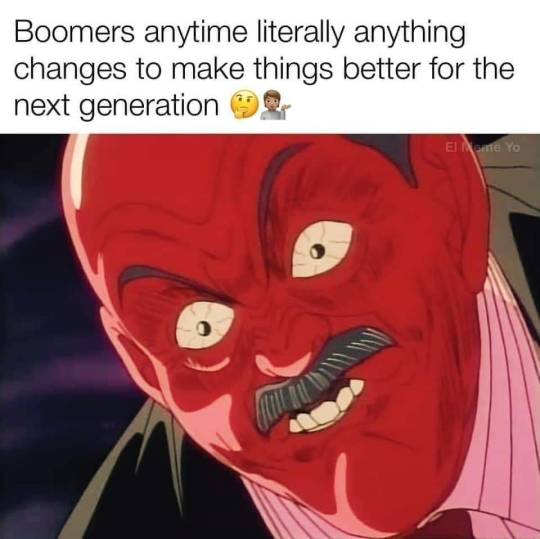
*Red State boomers. #FragileConservatives
360 notes
·
View notes
Text
The pressure to repay debts is forcing poor nations to continue investing in fossil fuel projects to make their repayments on what are usually loans from richer nations and financial institutions, according to new analysis from the anti-debt campaigners Debt Justice and partners in affected countries.
The group is calling for creditors to cancel all debts for countries facing crisis – and especially those linked to fossil fuel projects.
“High debt levels are a major barrier to phasing out fossil fuels for many global south countries,” said Tess Woolfenden, a senior policy officer at Debt Justice. “Many countries are trapped exploiting fossil fuels to generate revenue to repay debt while, at the same time, fossil fuel projects often do not generate the revenues expected and can leave countries further indebted than when they started. This toxic trap must end.”
According to the report, the debt owed by global south countries has increased by 150% since 2011 and 54 countries are in a debt crisis, having to spend five times more on repayments than on addressing the climate crisis.
#climate change#fossil fuels#colonialism#debt#debt cancellation#what a perverted twisted economic system
531 notes
·
View notes
Video
Did anyone else catch that voting reference on Beyoncé's new album? 👀 🏇
Beyoncé, thank you so much for the gift that is COWBOY CARTER. Your new album reminds us that we ALL have power. Together, we can stand up for what we believe in and this year is the perfect opportunity to do that at the ballot box.
From voting rights and access to reproductive healthcare to student debt relief and climate change, the issues that impact us most are on the ballot across the country. And as Queen Bey says at the end of Ya Ya, we need to “Keep the faith, and VOTE!”
You can register to vote in the time it takes you to listen to Sweet Honey Buckin’ (or whichever song is your favorite!). Visit weall.vote/register now! 🤠🗳️
#COWBOY CARTER#cowboycarter#beyonce#queen bey#YA YA#vote#voting#keep the faith#when we all vote#voting rights#reproductive healthcare#student debt relief#climate change#election#ballot
30 notes
·
View notes
Text
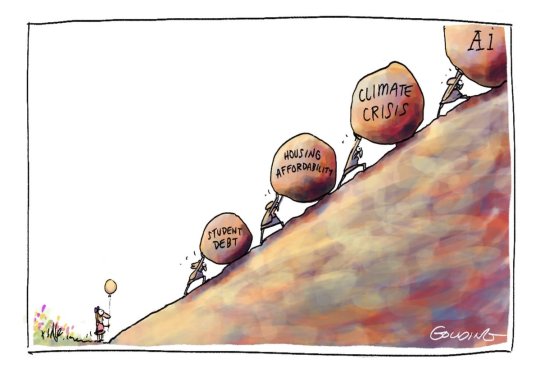
76 notes
·
View notes
Text
Link to call your senator.
-fae
76 notes
·
View notes
Text
By Olivia Rosane
Common Dreams
Nov. 22, 2023
Recommendations include tripling renewable energy capacity by 2030, phasing out fossil fuels by 2050, and providing the Global South with the means to fund its energy transition.
As world leaders prepare to gather at the COP28 global climate talks next week in Dubai, 350.org published a report Wednesday detailing how negotiators can draft a just and effective global transition to renewable energy.
One of the main agenda items at COP28 will be a worldwide target for renewable energy. Yet this target must be accompanied by a 2050 phaseout of fossil fuels and funds to speed the transition in the Global South, 350.org concluded.
"A renewable energy target at COP28 will only constitute a meaningful step towards climate justice if it is accompanied by a clear roadmap for implementation that includes equitable mechanisms and commitments in the financial and policy realms, as well as an urgent and equitable phaseout of fossil fuels," Andreas Sieber, 350.org associate director of global policy, said in a statement. "Without these, any agreement would represent a hollow, 'easy win' for the COP28 President Al Jaber, and risk allowing polluting countries to hide behind a renewables goal while continuing to emit fossil fuels."
"To achieve the proposed global renewable energy target by 2030, massive growth in financial investment into renewable energy is required in the Global South outside China, from both private and public sources."
The report, fully titled Power Up for Climate Justice: Financing and Implementing a 1.5°C-Aligned Global Renewables Target, also details how the target itself can be meaningful.
"For the global renewable energy target at COP28 to address global energy needs and redress fossil fuel dependency, it must include commitments to triple fair, safe, and clean renewable energy capacity by 2030 and deploy 1.5 terawatts per year thereafter, double energy efficiency by 2030, and completely phaseout of fossil fuels by 2050," said 350.org executive director May Boeve.
The report further argues that the target should be based on demonstrably effective technologies like wind and solar power.
"There is no room for dangerous distractions and unproven technologies such as Carbon Capture and Storage, nuclear energy, ammonia co-firing, which do not address the root causes of the climate crisis, and often cannot be implemented at scale," the report authors wrote.
They also emphasized the importance of providing poorer nations with the funds to scale up their renewable energy buildouts.
"To achieve the proposed global renewable energy target by 2030, massive growth in financial investment into renewable energy is required in the Global South outside China, from both private and public sources," Sieber said. "Barriers such as debt and the inequitable cost of capital in the Global South, significantly hinder investment in renewable energy."
Only $260 billion was invested in the Global South in 2022, the report notes, even though the International Energy Agency has said that $1.9 trillion is needed per year by 2030 in order to limit global heating to 1.5°C while providing energy to around 5 billion people—an amount of finance seven times 2022 levels.
The report offers several suggestions for how that funding can be realized, including canceling debt; sending the Global South $100 billion a year in concessional finance, providing it with $200 billion a year in grants; and channeling money away from fossil fuels by taxing profits, shifting subsidies and investments from fossil fuel projects to renewables, taxing wealth, issuing more Special Drawing Rights from the IMF, and using existing infrastructure funds.
The report comes at a crucial time for climate action. This year, 2023, is likely to be the hottest year in 125,000 years, and the U.N. concluded this week that current pledges put the world on course for 2.9°C of warming beyond preindustrial levels. But 350.org argues it's not too late to limit warming with ambitious action.
"The Paris Agreement is the landmark multilateral framework to stop climate change, and COP28—which includes the Global Stocktake of whether the world is on track to meet this target—is a pivotal moment to achieve its intended goal: limiting global heating to no more than 1.5°C," the report authors said.
#350.org#carbon capture and storage#climate emergency#climate justice#debt#fossil fuels#renewable energy#solar power#special drawing rights#wind power#cop28
20 notes
·
View notes
Text
"Part of the job of the left is to raise people’s expectations for what they deserve, to make it clear to them that as a person with dignity and worth, in a world of abundance, they are entitled to have a good life and have their basic needs met. We can end low wages, medical debt, student debt, and so much more — and we must. Those who stand in the way of making our lives better need to be called out for imposing intolerable conditions. The climate crisis is a policy choice. Poverty is a policy choice. Homelessness is a policy choice. The question is not whether these problems can be fixed, but what our values are: which do we care more about, corporate profits or the lives of people like Candice Davis [a teacher who works at Starbucks for no salary just to cover her medical expenses]? We can structure an economic system in a way that prioritizes the former over the latter, or vice versa, and it has nothing to do with the limits of the 'possible.' It is simply about what those with the power to alter these conditions decide they care about.
It is vital to keep reminding people that we are not hopeless, and our conditions can be changed (and changed quickly, as the rapid spread of the Fight for 15 movement shows). Things don’t have to be this way. A better world is possible."
- Nathan J. Robinson, from "Say It With Me: Things Don’t Have To Be This Way." Current Affairs, 25 January 2023.
#nathan j. robinson#quote#quotations#leftism#progressivism#activism#a better world is possible#democratic socialism#climate crisis#climate change#debt#poverty#homelessness#healthcare#american politics#neoliberalism#capitalism
86 notes
·
View notes
Text
Things Biden and the Democrats did, this week #10
March 15-22 2024
The EPA announced new emission standards with the goal of having more than half of new cars and light trucks sold in the US be low/zero emission by 2032. One of the most significant climate regulations in the nation’s history, it'll eliminate 7 billion tons of CO2 emissions over the next 30 years. It's part of President Biden's goal to cut greenhouse gas emissions in half by 2030 on the road to eliminating them totally by 2050.
President Biden canceled nearly 6 Billion dollars in student loan debt. 78,000 borrowers who work in public sector jobs, teachers, nurses, social workers, firefighters etc will have their debt totally forgiven. An additional 380,000 public service workers will be informed that they qualify to have their loans forgiven over the next 2 years. The Biden Administration has now forgiven $143.6 Billion in student loan debt for 4 million Americans since the Supreme Court struck down the original student loan forgiveness plan last year.
Under Pressure from the administration and Democrats in Congress Drugmaker AstraZeneca caps the price of its inhalers at $35. AstraZeneca joins rival Boehringer Ingelheim in capping the price of inhalers at $35, the price the Biden Admin capped the price of insulin for seniors. The move comes as the Federal Trade Commission challenges AstraZeneca’s patents, and Senator Bernie Sanders in his role as Democratic chair of the Senate Health Committee investigates drug pricing.
The Department of Justice sued Apple for being an illegal monopoly in smartphones. The DoJ is joined by 16 state attorneys general. The DoJ accuses Apple of illegally stifling competition with how its apps work and seeking to undermining technologies that compete with its own apps.
The EPA passed a rule banning the final type of asbestos still used in the United States. The banning of chrysotile asbestos (known as white asbestos) marks the first time since 1989 the EPA taken action on asbestos, when it passed a partial ban. 40,000 deaths a year in the US are linked to asbestos
President Biden announced $8.5 billion to help build advanced computer chips in America. Currently America only manufactures 10% of the world's chips and none of the most advanced next generation of chips. The deal with Intel will open 4 factories across 4 states (Arizona, Ohio, New Mexico, and Oregon) and create 30,000 new jobs. The Administration hopes that by 2030 America will make 20% of the world's leading-edge chips.
President Biden signed an Executive Order prioritizing research into women's health. The order will direct $200 million into women's health across the government including comprehensive studies of menopause health by the Department of Defense and new outreach by the Indian Health Service to better meet the needs of American Indian and Alaska Native Women. This comes on top of $100 million secured by First Lady Jill Biden from ARPA-H.
Democratic Senators Bob Casey, Tammy Baldwin, Sherrod Brown, and Jacky Rosen (all up for re-election) along with Elizabeth Warren, Cory Booker, and Sheldon Whitehouse, introduced the "Shrinkflation Prevention Act" The Bill seeks to stop the practice of companies charging the same amount for products that have been subtly shrunk so consumers pay more for less.
The Department of Transportation will invest $45 million in projects that improve Bicyclist and Pedestrian Connectivity and Safety
The EPA will spend $77 Million to put 180 electric school buses onto the streets of New York City This is part of New York's goal to transition its whole school bus fleet to electric by 2035.
The Senate confirmed President Biden's nomination of Nicole Berner to the Court of Appeals for the Fourth Circuit. Berner has served as the general counsel for America's largest union, SEIU, since 2017 and worked in their legal department since 2006. On behalf of SEIU she's worked on cases supporting the Affordable Care Act, DACA, and against the Defense of Marriage act and was part of the Fight for 15. Before working at SEIU she was a staff attorney at Planned Parenthood. Berner's name was listed by the liberal group Demand Justice as someone they'd like to see on the Supreme Court. Berner becomes one of just 5 LGBT federal appeals court judges, 3 appointed by Biden. The Senate also confirmed Edward Kiel and Eumi Lee to be district judges in New Jersey and Northern California respectively, bring the number of federal judges appointed by Biden to 188.
#Thanks Biden#Joe Biden#Democrats#politics#US politics#climate change#climate crisis#student loans#debt forgiveness#shrinkflation#women's health#drug prices
445 notes
·
View notes
Text
screaming crying coughing up blood every time i have to fucking defend genocide joe bc ppl wanna lie and say he isn't responsible for most of the best domestic policy we've seen in decades
his foreign policy is dogshit, yes, and he should rightly be called on it and primaried out, but we can criticize the shit he's actually done wrong instead of making shit up about him ~not doing anything good~
#thinking about the keystone pipeline shutdown and how fully 2/3 of the people he appointed to legislative systems were women and poc#thinking about student debt forgiveness and rejoining the paris climate accord and unfucking some of the extreme gerrymandering#and improving COVID protections (that were roundly thrown out by corporate america which is its own concern yes but like. he's not a king)#'biden didn't fix' blah blah blah he's not a fucking dictator he can't actually do whatever he wants. the only thing the GOP lets slide#is the aforementioned dogshit foreign policy bc fuck knows every last republican loves bombing the middle east and supporting israel#(remember that the evangelical xtian death cult requires israel for the apocalypse!! that is a very real fucking thing these ppl strive for#(and evangelicals support the GOP for this very fucking reason. you cannot forget this. we are all fighting for all our goddamn lives rn)#stirring up trouble#i hate biden i hate his foreign policy i hate how ok he is with fascism i hate most of his pre-presidential voting record BUT#i will not let that hate blind me to the reality that he is Objectively Miles Ahead Of Any Fucking Republican Alternative#i still want his ass primaried out of the presidential race so hard he physically blacks out upon seeing the polling results tho#and fuck. at least the dem side seems to have a lot of good progressive downballot candidates this time around already.
12 notes
·
View notes
Text

The emotional contrast between Paldean Wooper and Smoliv is impeccable. Kudos to whoever put them right next to each other on the PokéCenter website.
#pokemon#paldean wooper#smoliv#wooper's thoughts: 🌸☀️😄💖🎉#smoliv's thoughts: death. war. taxes. the 2024 us presidential election. bills. student debt. debt to income ratio. climate change.
9 notes
·
View notes
Text
Growing inequality also seems to drive carbon emissions overall. While the bottom half of income groups in the United States and Europe reduced per capita emissions by 15 to 20 percent between 1990 and 2019, the richest 1 percent increased their emissions quite significantly everywhere. Today, the richest 10 percent of people on the planet are responsible for nearly half of all carbon emissions. This may come as no surprise to those who have been watching the super-rich take extraterrestrial joyrides, at a cost of $55 million per ticket, in just one of the many ways in which their conspicuous consumption affects the ecosystem.
As the rich in different countries have become even richer (and more politically powerful), they are even more blatant and uncaring about their environmental impact—or happy to render lip service rather than pursue real change in their patterns of investing and living. This conforms to the pattern that would be predicted by a recognition of imperialism. The elites in rich and poor countries alike are able to benefit from an economic system in which they grab more and more of available resources, including extraction from nature and exploitation of the planet.
This suggests that climate policies should target wealthy polluters more. Instead, carbon taxes fall more heavily on low- and middle-income groups and have relatively little impact on the consumption patterns of the wealthiest groups, both in rich and in poor regions. Clearly, the strategies to reduce carbon emissions need to start focusing on containing the consumption of the rich, both within individual countries and globally. This requires a major shift in how climate alleviation policies are conceived and implemented.
Jayati Ghosh, Shouvik Chakraborty and Debamanyu Das, Climate Imperialism in the Twenty-First Century
123 notes
·
View notes
Photo

As Women’s History Month comes to a close, we’re looking ahead to the 2024 general election. From our access to reproductive healthcare and voting rights to student debt relief and climate change — the issues that impact us the most are on the ballot.
When All Women Vote, we determine the direction of this country.
Make sure you are registered to vote NOW at weall.vote/register.
#women's history month#women#whm#womenshistorymonth#when all women vote#voting#vote#reproductive healthcare#voting rights#student debt relief#climate change#ballot
13 notes
·
View notes